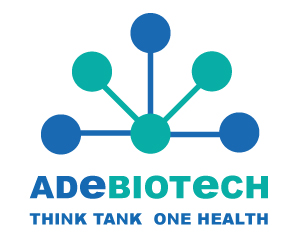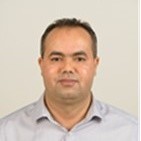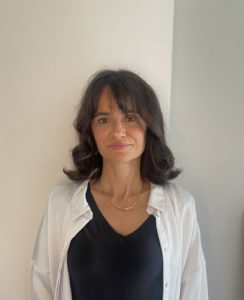
Sophie Barbe is a research director at Toulouse Biotechnology Institute (TBI), where she co-leads the EnzyOne axis (Enzymes & Molecular Assemblies for One Health) in the Catalysis and Enzyme Molecular Engineering team. She holds a PhD in Computational Structural Biology from ENS Cachan. After her thesis at the LPBA, she completed a post-doc as part of an interdisciplinary project involving four labs (LAAS-CNRS, TBI, IPBS and ITOM-INSERM). In 2009, she joined INRAE, and since then, she has been conducting her research activities at TBI. She leads interdisciplinary research activities focused on the development and application of molecular modelling and computational protein design methods, as well as the study of protein sequence-structure-dynamics-function relationships, all for the rational engineering of tailor-made biomolecules for bio(nano)technologies and health.
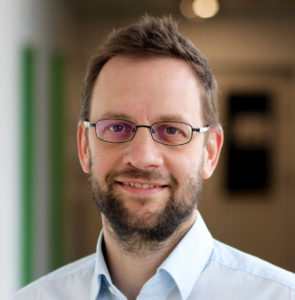
Jean-Christophe Baret is professor at the university of Bordeaux, France and group leader at the Centre de Recherche Paul Pascal CRPP, CNRS since 2014. Over the past 20 years he has contributed to the development of microfluidic methods for the miniaturization of biological assays, at ISIS-Univ. Strasbourg as a post-doc in the Griffiths lab and later at the Max Planck Institute for Dynamics and Self-Organization in Goettingen as Group Leader, before joining the University of Bordeaux. Since 2014, his activities cover multidisciplinary projects dealing with protein engineering, high-throughput screening in microfluidics and the development of microfluidics methods for the construction of artificial cells from the bottom-up.
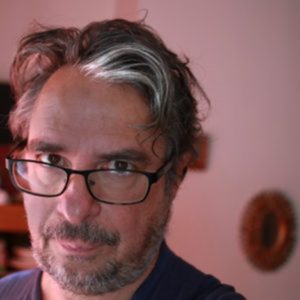
Sylvio is the Scientific programs coordinator at Adebiotech, the Paris-based transdisciplinary biotechnology independent think tank since October 2018. Starting with an academic background in cellular immunology, he gained confirmed >20 years experience in Bioproduction and Purification of therapeutic proteins (and gene therapy vectors). He acquired strong technical and strategic business development experience in various scientific domains (chromatography, cell culture, molecular biology, high-end instrumentation, proteomics, analytical services) through management positions at PALL Life Sciences, Ciphergen Biosystems, Life Technologies, Merck/VWR, BioSepra/Sepracor Inc
Before joining Adebiotech he acted as a strategy consultant for international biotech organizations . Sylvio is a multicultural person and has been a frequent speaker and moderator at various academic and industrial BioProcessing related conferences worldwide.
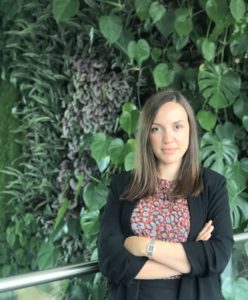
Dr. Rita Cruz joined Ingenza in 2016 where she leads projects with both academic partners and high-profile global customers to deliver high-risk disruptive research and steers programmes towards commercialisation. Rita is an expert in the development and optimisation of microbial recombinant protein expression systems. Successful applications range from platform vaccine development, agrobiotechnology and scalable production of enzymes for biocatalysis and home care products. Prior to her time at Ingenza, Rita received a PhD through the prestigious Marie Curie Industrial European Doctorate programme at the Centre for Bacterial Cell Biology at Newcastle University in collaboration with DSM, a world leader in enzyme manufacturing.
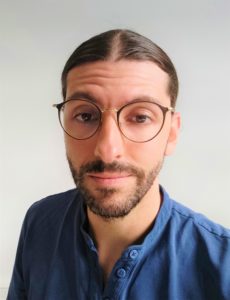
Dr. David Daudé is CEO and CSO of Gene&GreenTK, a deeptech start-up specialised in the development of sustainable alternatives to conventional antibacterial treatments through innovative enzymes. He graduated as an engineer from the National Institute of Applied Sciences (INSA) in Toulouse in 2009, and then obtained a PhD in microbial and enzymatic engineering at the Toulouse Biotechnology Institute (TBI). He then joined Gene&GreenTK at the creation as a researcher and his role quickly evolved to become CEO/CSO in 2020. He is in charge of managing the company and overseeing innovation to accelerate the industrialization and marketing of the start-up’s innovations.
At 37, he has published 32 scientific papers and is involved in the filing of 3 patents. He has participated in the supervision of 7 theses and the coordination of 7 research projects
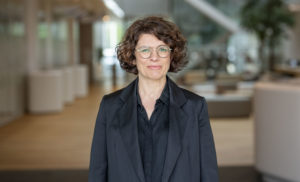
Maureen de Wispelaere is the Global Innovation Manager Brewing and Ingredient Processing at dsm-firmenich. She holds a Bachelor in Life Science & Technology from the Delft University of Technology and a Master in Food Technology from the Wageningen University. With over 15 years in the food industry, Maureen has in-depth experience in R&D and new product development hat address customers and consumers unmet needs. For a large part Maureen worked in (FMCG) categories, developing and delivering new products to the market. Furthermore she has a strong background in B2B being responsible for leading the innovation portfolio. In dsm-firmenich she sets the strategy for innovation and drives the innovation portfolio towards commercialisation. Moreover, she supports customers in a variety of industries to grow their business models and achieve their sustainability goals through joint value creation initiatives. Valorisation of by-products is an important topic across both her brewing and ingredient processing segments. Enzymes bring a sustainable solution to the challenges that come along with this.
Her in-depth knowledge of the food and beverage sector combined with her innovation expertise make her the ideal partner to customers wishing to develop advanced, high-quality and great tasting food ingredients and beverage products, in a sustainable way.
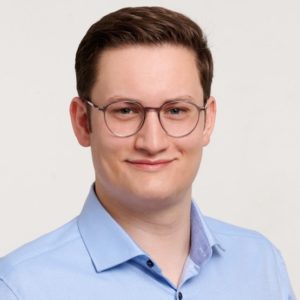
Sebastian Gergel embarked on his role as a research scientist at EnginZyme in early 2022, joining the Stockholm-based startup dedicated to developing an innovative cell-free biomanufacturing platform with enzyme immobilisation at its core. His primary focus is on developing immobilised enzyme formulations for use in continuous flow processes, with the overarching goal of utilising this technology to mitigate the environmental impact of chemical production.
Before transitioning to industry, Sebastian earned his PhD degree in 2021 from Bielefeld University in Germany, specialising in organic synthesis, biocatalysis, and directed enzyme evolution. His pioneering work involved evolving a P450 monooxygenase to efficiently oxidise internal alkenes into ketones, a challenging catalytic reaction with the potential to streamline synthetic routes. Prior to this, he obtained both his MSc and BSc degrees in chemistry from the University of Stuttgart, Germany.
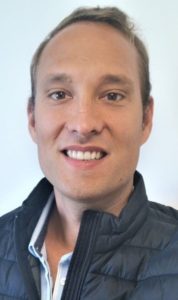
I carried out my Ph.D thesis focused on Biocatalysis field within the IMoPA Lab (UMR 7365 UL/CNRS), works for which I received the thesis award from University of Lorraine in 2018.
After this experience, I accomplished a postdoctoral fellow on an industrial scale-up of an enzymatic technology addressing the food and pharmaceutical industries.
I became Head of the Biocatalysis lab (GRL – Arkema France) in 2019. Aim of this laboratory is to develop the Biocatalysis field within Arkema by targeting commodity and speciality chemicals. Arkema’s Biocatalysis team has developed an original approach towards innovative processes, based on biotechnologies, which fully contributes to the group’s commitments.

Juliette i is Scientific Communication Manager at Seqens. After a PhD in organic chemistry at university of Caen, she pursued a career in Industry at Zeneca Life Sciences (in UK) as R&D Project Leader (in 1999), then as R&D group leader in a Fine Chemical company: Zach System in France (Angers). In 2006, she became Head of Biocatalysis for pharmaceutical services at PCAS site in Aramon (France). In 2009, she was appointed R&D Manager focusing on process scale-up and technology development. In 2012, she hold the position of General Manager at Protéus.
Since 2022, she focuses on leveraging R&D partnerships and scientific communication.
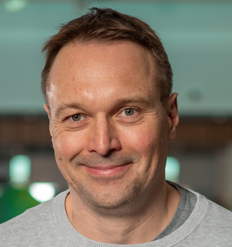
Jens Erik Nielsen is Vice President of Enzyme Research at Novozymes A/S. He holds a PhD from the EMBL/Philipps-Universität Marburg in computational biology. He post-doc’ed at the EMBL and at UCSD before taking up a Sen. Lecturer position at University College Dublin and studying protein electrostatics and enzyme catalysis. Since 2011 he has working at Novozymes in various positions before taking on the responsibility for basic enzyme discovery, engineering and production strain construction in 2020.
Jens enjoys understanding the biophysical principles that limit enzyme performance in application and in the methods we have available for engineering and formulating enzymes to overcome these limitations. Lately he has become particularly interested in how we make biological solutions robust enough and cheap enough to be widely adopted in society and thus contribute more to a sustainable planet. The engineering of enzymes to be stable under extreme conditions and the contextualization of biology in industrial are main contributions in his recent work at Novozymes.
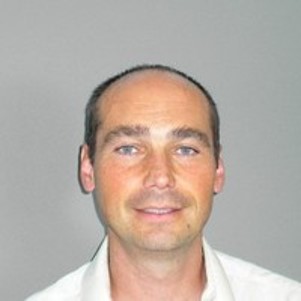
After an agricultural engineer School in France (Lasalle Beauvais), Alexis RANNOU joined ARD for activities in R&D to extract non digestible sugar for surfactant application (1991-1995). He was after in charge of ARD’s pilot plant (1995-1997).
In 1997 he joined the Soliance company (daughter company of ARD) as technical director.
In 2000 he was named as Deputy General Manager in charge of the industrial production.
In 2007 he was in charge of the innovation team and several global accounts.
In 2014 he joined Givaudan as Operations Director & site manager
Since 2018, he held the position of Head of Operations Strategy in charge of tolling & process development for Givaudan Active Beauty
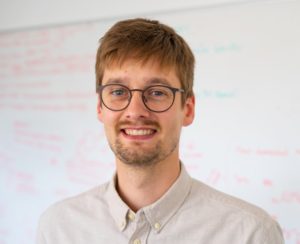
Alexander (Ph.D. in Chemistry/Nanoscience) is working as a consultant at The Danish Technological Institute and has an interdisciplinary background with expertise within polymer chemistry, bioconjugation, chemical DNA synthesis, solid-phase chemistry, electrochemistry, flow chemistry and surface chemistry.
Alexander is developing green research projects by scouting difficult industrial challenges and engaging knowledge institutions towards solving some of the most difficult hurdles in the green transition, one of these projects being EnZync. Other focus areas include technical due diligence, product development and technology scouting for Danish companies. Technical focus areas include plastics and textile recycling, chemical production with reduced carbon footprint, and upcycling of waste streams.
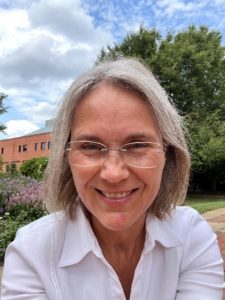
Dr. Sonja Salmon leads the Textile Biocatalysis Research team in the Wilson College of Textiles. After completing a B.S. degree in Textile Chemistry and Ph.D. in Fiber and Polymer Science from North Carolina State University, she worked for 20+ years at Novozymes North America, Inc., in research and development roles from Scientist to Senior Innovation Manager, developing new enzyme applications for industrial processes including textiles, household care, pulp and paper, waste treatment, biofuels, specialty applications, and CO2 capture. Central to her current research and teaching is building insights on the diverse interactions possible between enzymes, polymers and fibers, especially biobased materials, and how these can play important roles in making products and processes more sustainable. She teaches courses in Biobased Textile Materials and Processes, Chemistry of Biopolymers, and Technology of Dyeing and Finishing. Active projects include enzymatic fiber separation, polymer degradation, CO2 capture, hemp fiber processing, composting test method development, polymers for enzyme immobilization, and leading the Novo Nordisk Foundation funded Biocatalyst Interactions with Gases (BIG) Collaboration that aims to advance enzyme technology for CO2 capture, CO2 conversion and N2 reduction to ammonia, which are critically important in addressing global challenges.
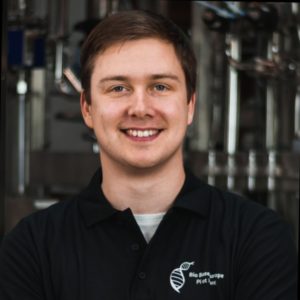
Dr. ir. Nico Snoeck is business development manager at BBEPP. He obtained his master’s degree in bioscience engineering in 2015 and holds a PhD in Biotechnology (2020) from Ghent University. During his doctoral research he developed new biosynthetic toolboxes for the engineering of Escherichia coli to fermentatively produce complex glycan structures. The research resulted in 3 patent applications. Since 2019, he has been with Bio Base Europe Pilot Plant as business development manager coordinating multiple bilateral scale-up projects in the fields of fermentation, biocatalysis and downstream processing.
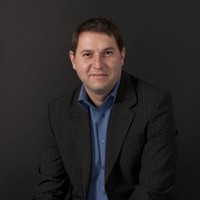
With a dual expertise in Biochemistry and Marketing, Jacky VANDEPUTTE began his career in the field of quality and promotion of agri-food industries, first within a dairy ingredient trading company and then at UNIJUS, an association for fruit juice. He then joined the french competitiveness cluster Bioeconomy For Change, where he spent 17 years of his career as innovation director and established key services: the TREMPLIN monitoring platform, led the thematic working groups (plant chemistry and industrial biotechnology), launched the plant based innovation kit, coordinated the regional biobased innovation program, the action « introduce biomass into your company, » and the collective actions « vegereach »: finding plant-based alternatives to hazardous substances and « IARACV »: « Demonstrating the environmental and socio-economic benefits of bioproducts. » As a coordinator for R&D projects, particularly in the field of plant chemistry and industrial biotechnology (Biomolecules), he is sought after for his expertise by numerous organizations to support project leaders and assess their applications, including TWB, GENOPOLE, and the Agrio
label. With a total of over 360 R&D&I projects financed, totaling more than 2 billion euros, resulting in new bioproducts (biolubricants, bio-sourced coatings, plant-based adhesives, etc.) and new factories ; he has organized and led more than a hundred events and working groups on the topics of bioeconomy, plant chemistry, and industrial biotechnology. His support has extended to numerous chemical groups and SMEs in evaluating their project portfolios and defining their strategies, as well as participating in the development of various bioeconomy platforms…
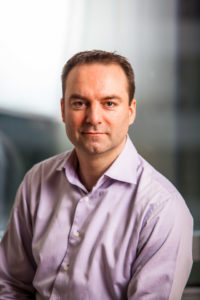
Olivier Vidalin is Head of Group Biotechnology R&D at SEQENS. He holds a PhD from Lyon I University in Molecular Biology & Immunology. He took a Post-Doc position at GSK in the UK were he stayed seven years in vaccine development. In 2012 he worked for TotalEnergies in new energies department as program Manager in charge of the development of a start-up in biotechnologies based in the US. Since 2020, he works for SEQENS, to promote and push for the use of Biocatalysis and Enzyme engineering for wide applications within the group.
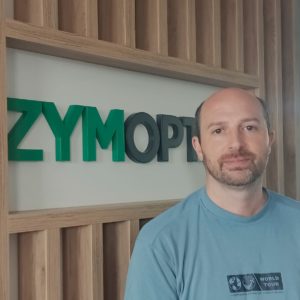
Alexis Vlandas, co-founder of Zymoptiq, spent years at the interface between micro/nanotechnology and biology. After his PhD on nano-materials at the University of Oxford, he went on to the Max Planck Institute in Stuttgart to work on biosensors and lab on chip. He joined CNRS in where he developed and patented a disruptive micro/nano technology to measure enzymatic activity. With Philippe Peaby, he co-founded Zymoptiq in 2019 to market this technology which aims to transform the way industrial companies measure enzymatic activity in complex samples.
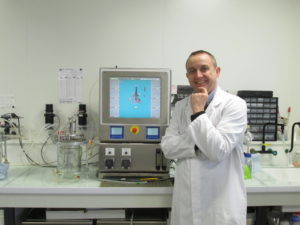
He completed a Ph.D. in organic chemistry in pharmaceutical fields in 1990. F. Yvergnaux finished a post-doctoral experience about the synthesis of molecules linked to pharmaceutical applications in Lausanne, Switzerland, before he returned to France to lead a technical center in the management of projects for cutaneous applications in the field of biotechnology and lipids.
In 2002 he became Research and Development Director of Solabia Group for cosmetic and nutritional activities.
He has authored or co-authored 49 patents or scientific publications in the last 15 years.
His main research interests are focused on biotechnologies and plant extracts for the development of dermo-cosmetic applications. He participates in numerous national and international congresses related to dermo cosmetic or biotechnologies and he is also a member of various scientific committees and reviewer for different International Journals.
He is Vice President of the cluster Cosmetic valley which is the world’s leading perfumery and cosmetics network.
